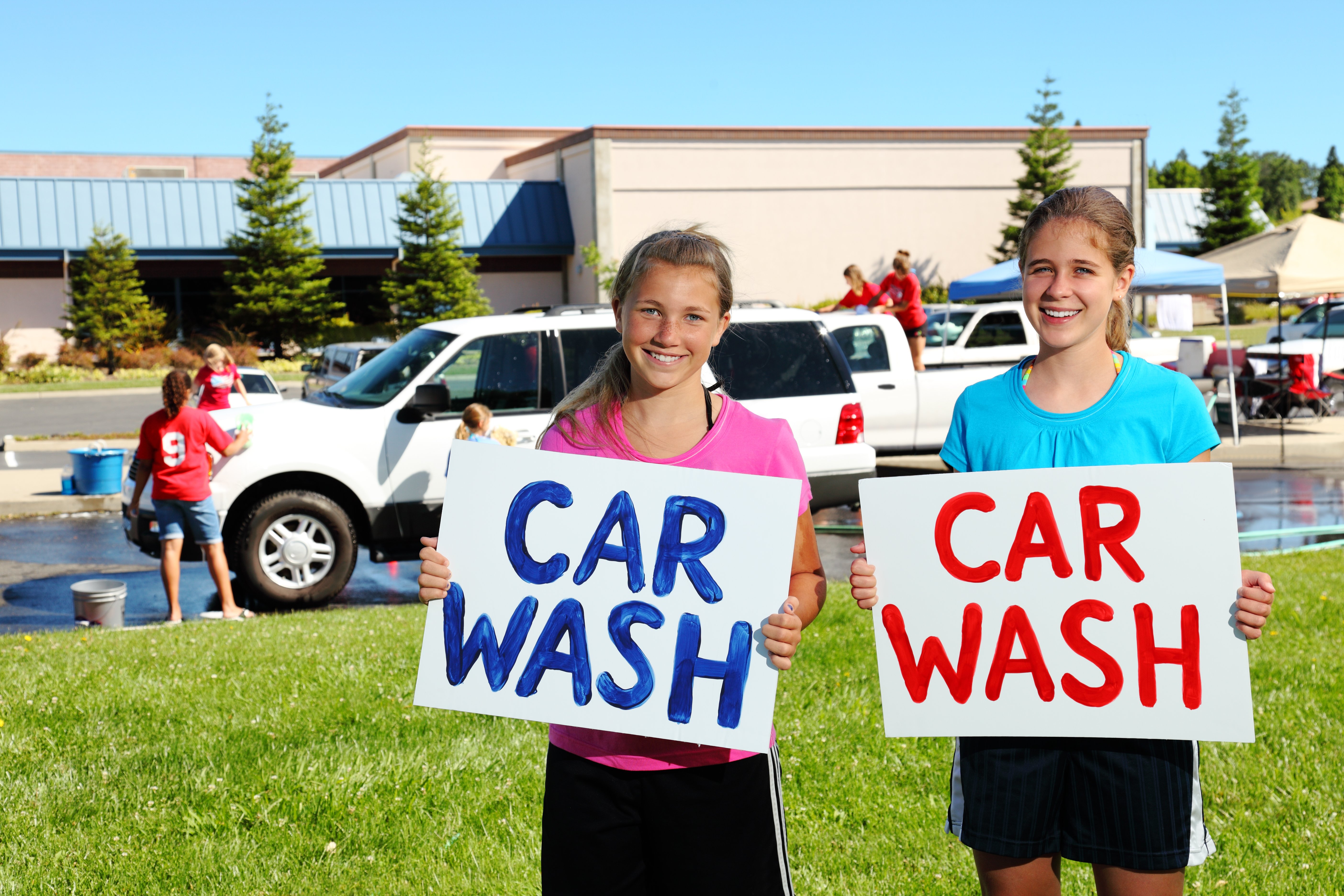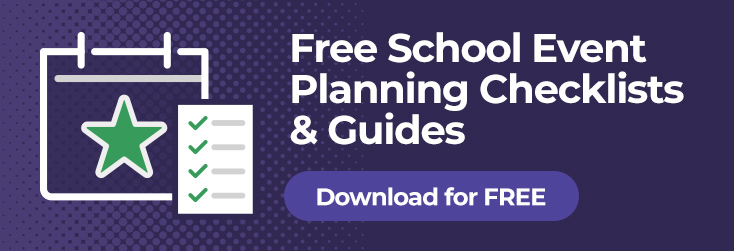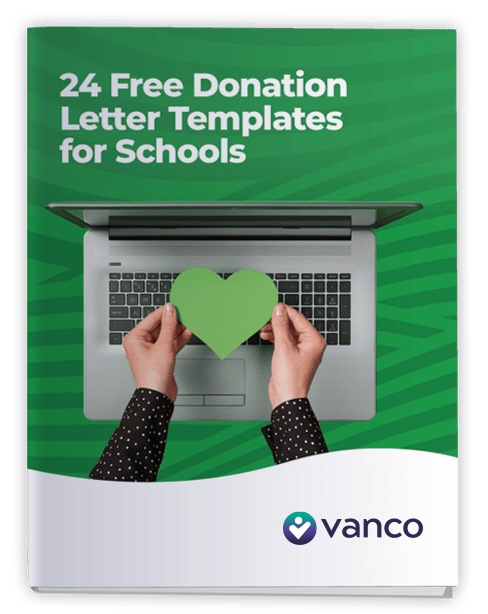
While public school fundraising may seem simple by nature, the laws surrounding it can be anything but. There are many federal, state and local rules and regulations that public schools must follow when raising money for their schools.
Because public schools receive governmental support, failure to comply can have severe consequences. The penalties can range from relatively minor fines all the way up to losing grants for important programs.
With such a severe risk involved if compliance isn’t perfect, many public schools prefer to use fundraising software to track and manage their fundraisers. These tools can help board members and students participating in the fundraiser accept payments, track everything automatically and simplify giving for their donors.
Table of Contents
- Understanding the Legal Landscape
- Ensuring Compliance in Fundraising Activities
- Parent-Teacher Associations and Organizations
- Role of Digital Solutions in Ensuring Compliance
- Avoiding Common Pitfalls in School Fundraising
- Resources and Tools for Further Guidance
- Key Takeaways
- FAQs
Understanding the Legal Landscape
When it comes to fundraising laws, it’s important to consider both federal and state laws. While federal fundraising laws apply relatively evenly across all 50 states, the exact laws in individual states can vary widely. Here’s a quick overview to help you understand the legal landscape your public school operates in.
Federal Laws Impacting Public School Fundraising
Federal laws that impact fundraising efforts mainly have to do with nonprofit status. For example, public schools must adhere to the same 501(c)(3) standards as any other nonprofit organization to maintain their tax-exempt status. This status is what allows public schools to accept tax-deductible contributions, which can make a big difference in fundraising efforts.
On top of that, it’s important to be able to protect student information. The Family Educational Rights and Privacy Act (FERPA) regulates how schools and related organizations can use student information for fundraising. To ensure compliance with this law, it’s important to avoid disclosing any unnecessary information about specific students. In addition, the Child Online Privacy Protection Act (COPPA) applies to fundraising involving children, further regulating the use of student information in online contexts.
Another thing that is important to consider is the Americans with Disabilities Act (ADA). Each framework for fundraising activities should include plans to be accessible to people regardless of their health status or disabilities. This might look like hosting fundraising events in spaces that are accessible for people with mobility aids, offering lower sensory input options for large events and otherwise working with students and their families to ensure that everyone can participate in a way that feels safe and comfortable for them.
While this may seem like a hefty list, the reason such laws are important is to ensure that fundraising is effective, sustainable and ethical. That way, it can continue well into the future, and there are fewer places for issues to crop up and distract from your mission.
Common State-Specific Regulations To Be Aware Of
One common rule to consider is that states often have laws preventing donors from receiving goods, services or monetary returns for their gifts. Small tokens of appreciation and public recognition are perfectly acceptable, but it’s important to consider what might be crossing a line before you make promises to donors.

Ensuring Compliance in Fundraising Activities
To make sure your fundraising activities are compliant, be sure to review the types of fundraising that public schools are allowed to do, have strategies to maintain compliance in advance and keep meticulous records of all fundraising activities.
Types of Fundraising Activities Allowed in Public Schools
There are a few restrictions on the types of fundraisers public schools can do. The main restrictions are:
- No gaming- or gambling-related activities are permitted.
- There should be no actual violation or appearance of a violation of any applicable ethics statutes or regulations.
- All donations must maintain the school’s integrity. Donations should not be used to imply that the school endorses the donor’s products or services and must not be used to attempt to influence a government organization.
- All donations must be impartial, both in fact and in appearance. Donations may not be used to sway the opinion of government officials or obtain special treatment.
- All fundraisers should maintain public confidence by avoiding any donations that may cause public controversy or involve inappropriate goods or services.
- All participation in fundraising must be fully voluntary on the part of students, organizations and community members. This includes voluntary donations.
There may be more specific rules for your state or district, so be sure to review all relevant laws and regulations before you start a fundraiser. However, these are the main six broadly applicable restrictions that all public school officials must be aware of for school-based fundraising activities.
Strategies for Maintaining Compliance
When it comes to maintaining compliance, there are a few main ways that you can ensure the fundraiser is compliant from start to finish.
- Stay informed and educated: Regularly update knowledge on fundraising laws at all levels of government and provide ongoing training for staff and volunteers to ensure everyone understands and follows legal requirements.
- Establish clear policies and documentation: Develop and communicate comprehensive fundraising policies, maintain detailed records of all activities and prioritize transparency in disclosing information to donors.
- Conduct regular compliance audits and obtain legal consultation: Conduct internal audits to assess compliance and seek legal guidance to review fundraising activities and policies, helping to address potential issues and ensure adherence to laws proactively.
Use these strategies each time you develop a framework for school-based fundraising activities to ensure compliance.
Recordkeeping and Documentation
When the fundraiser is going on, it is best practice to document as much as possible. This can help ensure that your revenue is tracked correctly, that you know where that revenue is coming from and that you can keep going until you achieve your fundraising goals.
Once the fundraiser is over, some forms are no longer necessary. As long as you have some overview documentation of revenue generated, who donated what and what that revenue will be used for, other details may not be needed. However, the things that you should keep forever include:
- Articles of Incorporation
- IRS Determination paperwork
- Insurance policies, both in general and specific to the fundraiser
- Audit reports
- Tax returns
- Deeds
- Corporate resolutions
When in doubt, it is better to keep records you may not need than to risk destroying records you will need in the future. Ensure that there is a clear, efficient filing system for all documentation so that paperwork is easy to access as needed. If your fundraising plan includes activities from donations or activities off school premises, be sure to record any relevant paperwork from those sources as well.
Parent-Teacher Associations and Organizations
One of the many ways that Parent-Teacher Associations (PTAs), also called parent-teacher groups, support public schools is by organizing fundraisers for school needs and wants and school-sponsored organizations.
Role of Parent-Teacher Associations in Fundraising
PTAs are a great resource for the school community. The members of the PTA, primarily parents and guardians of students and teachers, dedicate their time and energy to supporting initiatives that help the school do more, like charitable fundraising activities. From major fundraisers for new gym equipment to relatively small seasonal events, the PTA can assist with most stages in the process. They may also collaborate with student councils to put on fundraising events and student activity projects.
Regulations Governing Parent-Teacher Associations' Fundraising Efforts
While there is a lot that a PTA can do, there are some federal laws that restrict their activities. Mainly, it requires that PTAs don’t engage in any sort of business activity that isn’t directly related to their purpose of supporting the school district. As long as their role in the fundraiser is clear and directly related to supporting the school, you are probably in good shape.
Role of Digital Solutions in Ensuring Compliance
If all of this compliance feels like a lot to keep track of, you are not alone. That is part of why many school districts choose to use solutions like Vanco Education’s solutions, including Vanco’s fundraising software for schools. These platforms can support legal compliance by automatically tracking all incoming revenue and organizing it into easily accessible reports after the collection of funds is complete.
Vanco’s fundraising platform also helps by authorizing payments to ensure that all voluntary donations go through as expected, and if any issues pop up, relevant officials are notified immediately so they can be addressed. Because everything is in one place, it’s also relatively easy to double-check any information related to funds raised.
Waukee, Iowa’s school district is one of the fastest growing in the entire country, with about 12,000 students and counting. This school district deeply values how Vanco makes fundraising and payments easier for students, parents and administrators. From paying for fees on the web store to managing fundraisers, they can track, accept and refund payments quickly and easily. These online payments are certainly easier to track than methods like a collection box!
St. Cloud Cathedral High School also uses Vanco Payments and one of their favorite features is event ticket sales and tracking. This can be for everything from regularly scheduled sports events to events your public school sets up as fundraisers. With Vanco, school administrators can track ticket sales all in one place and print a single automatically generated report at the end of the event. This saves a lot of labor hours that were previously spent tracking payments, managing documents to organize attendees and gathering data after the event is over. That way, there is more time for other charitable fundraising activities.
Avoiding Common Pitfalls in School Fundraising
Some of the most common legal compliance issues that happen with public school fundraising are not registering the fundraiser, not getting proper licenses for regulated types of events and failing to stay up-to-date on changes to relevant laws. To prevent these issues from happening to your fundraiser, consider contacting your local government beforehand to confirm whether you need to get registration or licensing paperwork for the type of fundraiser you plan to host. Then, you can submit any required applications for fundraising activities and get the appropriate registrations and licenses.
Resources and Tools for Further Guidance
To check for updated information, be sure to review both federal and state resources. Your state’s Attorney General’s Office website should have the online resources you need to confirm compliance with state laws throughout your fundraiser. From registering to avoiding certain activities, this is where you are most likely to find a comprehensive list of dos and don'ts.
In addition to federal and state websites, you can use resources from Vanco to help you put together the details for your fundraiser. For example, if you need help writing a donation letter or improving the effectiveness of your fundraising letters, the experts on our blog are here to help. These materials can help you get activity sponsors that will support your fundraisers for things like campus activity funds.
Key Takeaways
When it’s time for your next public school fundraiser, be sure to review any federal, state and local laws that apply to your school districts. Once you have done that and confirmed that your planned activities follow the laws and have any necessary registrations and licenses, you can use online resources like Vanco’s payment solutions to organize your fundraising efforts and track revenue. These tools can help streamline the financial processes of your fundraising efforts and make it easier to ensure compliance with documentation.
FAQs
What are the key federal laws affecting public school fundraising?
The main federal laws you need to follow with public school fundraising are the:
- IRC Section 501(c)(3)
- Family Educational Rights and Privacy Act (FERPA)
- Child Online Privacy Protection Act (COPPA)
- Americans with Disabilities Act (ADA)
Other laws you should be aware of include general anti-discrimination laws like Title VI, Title IX and Section 504.
How does Vanco Education help schools manage fundraising activities legally?
Vanco Education helps schools manage fundraising activities by streamlining the entire process of the collection of funds, including payment processing, tracking and reporting.
Are there tax implications to consider in public school fundraising?
Yes. It is important to ensure that you follow IRC Section 501(c)(3) so fundraising donations can be tax-deductible.
How can digital payment solutions streamline fundraising activities?
Digital payment solutions streamline fundraising activities by making it easier for donors to give with their preferred payment method and automatically tracking all transactions.
How frequently do public school fundraising laws change?
The frequency of law changes can vary by the federal and state governments' cycles. Generally, these laws are not updated on a schedule, so it’s best to review any recent changes before each fundraising event.
Attention All School Fundraising Heroes!
Prepare for a Fundraising Revolution with FREE Donation Letter Templates!
Brace yourself for unparalleled success as you harness the explosive power of Vanco's 24 FREE donation letter templates. Unleash irresistible persuasion and skyrocket your PTO's fundraising endeavors to unimaginable heights. These battle-tested templates will captivate hearts and mobilize communities.
Seize this game-changing opportunity! Access the FREE donation letter templates now!












.jpg?width=450&height=250&name=School-event-planning-checklists_thumbnail%20(1).jpg)




